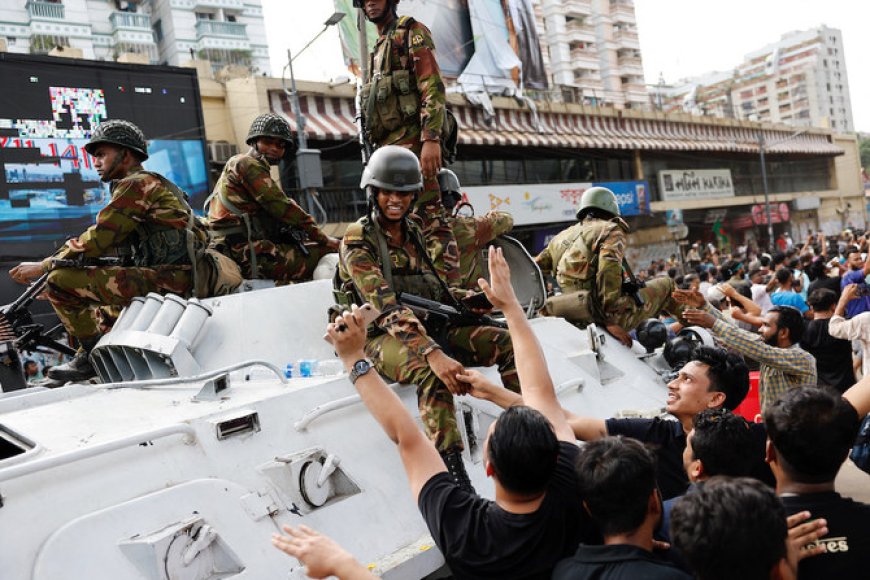Bangladesh's army chief, General Waker-Uz-Zaman, announced on Monday that he will form an interim government following the resignation of Prime Minister Sheikh Hasina amidst widespread protests. Speaking in military fatigues on state television, General Waker declared, "I am taking full responsibility. We will form an interim government," after confirming that Hasina had fled the capital.
The protests, initially triggered by civil service job quota reforms, have transformed into one of the most significant challenges to Hasina’s 15-year rule. Demonstrations, which began last month, have now engulfed the nation, calling for the 76-year-old leader's resignation.
Nation in Turmoil
“The country has suffered a lot; the economy has been hit, and many people have been killed — it is time to stop the violence,” General Waker said, emphasizing the need for calm. The general, a seasoned infantry officer with nearly four decades in the military, including two tours as a UN peacekeeper, stated his intent to consult the president on forming the interim government and has already engaged in talks with opposition parties and civil society members, excluding the Awami League.
Unrest and Violence
Bangladesh has been in a state of emergency since Sunday, following the deadliest day of unrest with at least 94 fatalities, including 14 police officers. Violent clashes between protesters and government supporters, compounded by security forces' actions, have led to a death toll of over 300 since early July.
Government Response
Internet access remains tightly restricted, businesses are shuttered, and the nation’s garment industry has come to a halt. Despite the curfew, protesters continue to flood the streets, dismantling barriers and clashing with security forces. The Business Standard reported an estimated 400,000 protesters in Dhaka alone, though this figure remains unverified.
Calls for Calm and Justice
General Waker urged students and citizens to remain calm and support the interim administration. He assured the nation that the new authorities would "prosecute all murders" linked to the protests, signaling a commitment to restoring order.
Historical Context
This political upheaval is reminiscent of the military’s intervention in January 2007, which led to the establishment of a caretaker government after a period of severe political unrest. The current situation, however, has seen unprecedented levels of violence and public outrage.
International and Domestic Reactions
The international community has expressed concern. UN rights chief Volker Turk condemned the violence, while analysts like Ali Riaz from Illinois State University highlighted the unprecedented nature of the uprising and the severe state response. Michael Kugelman of the Wilson Center noted the diminishing support for Hasina, describing the protests as gaining "immense momentum."
Future Prospects
The movement has garnered support across various societal sectors, including film stars and musicians, reflecting a broad-based call for change. Ex-army chief General Ikbal Karim Bhuiyan demanded the withdrawal of troops and supported the protesters' right to demonstrate, criticizing the government's role in the crisis.














































